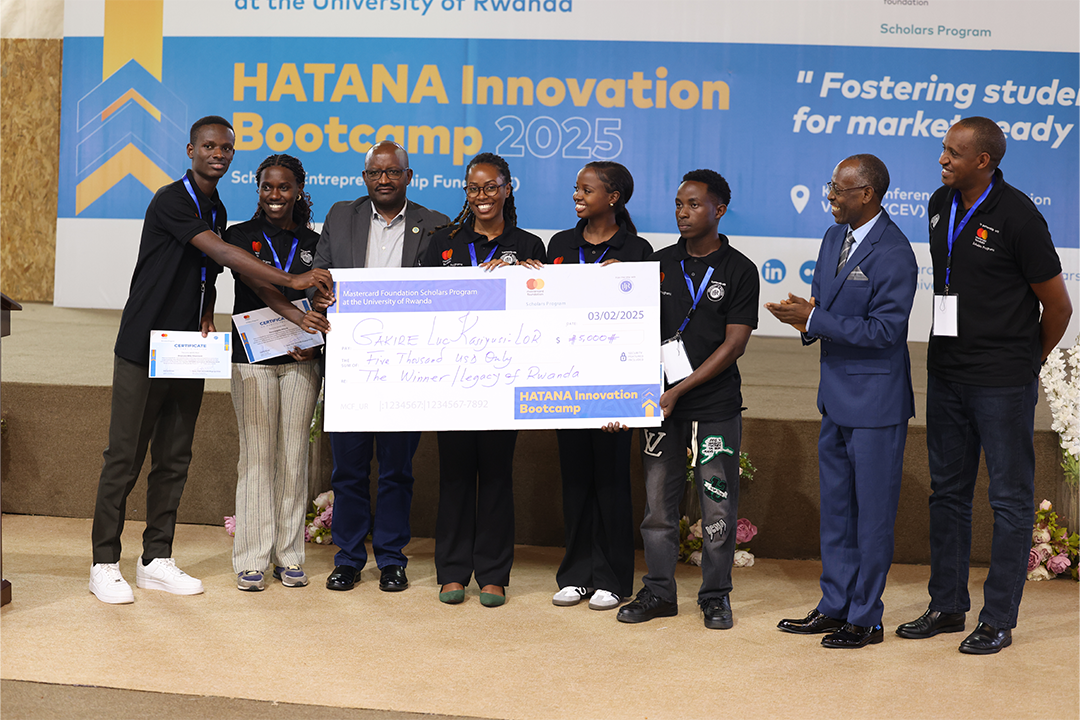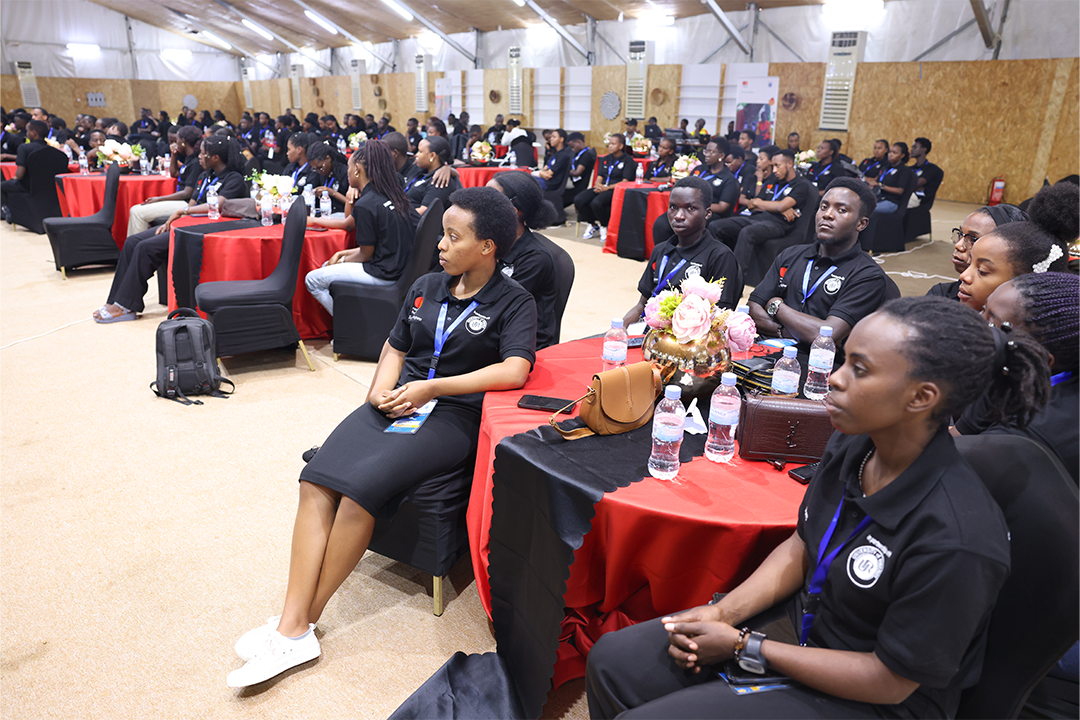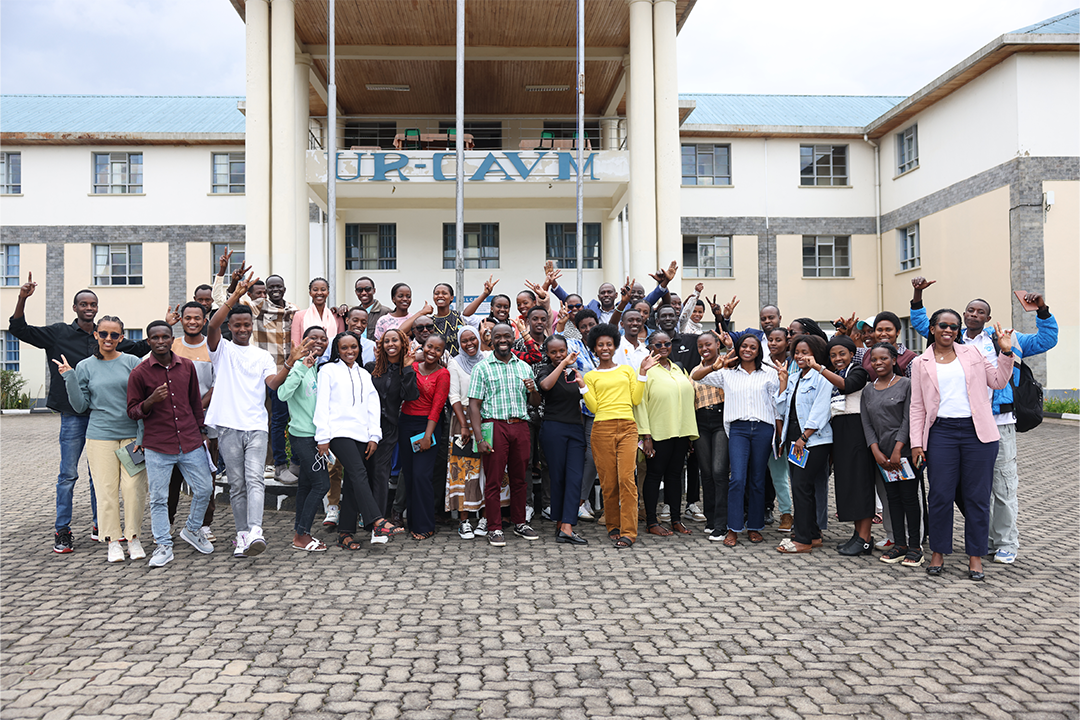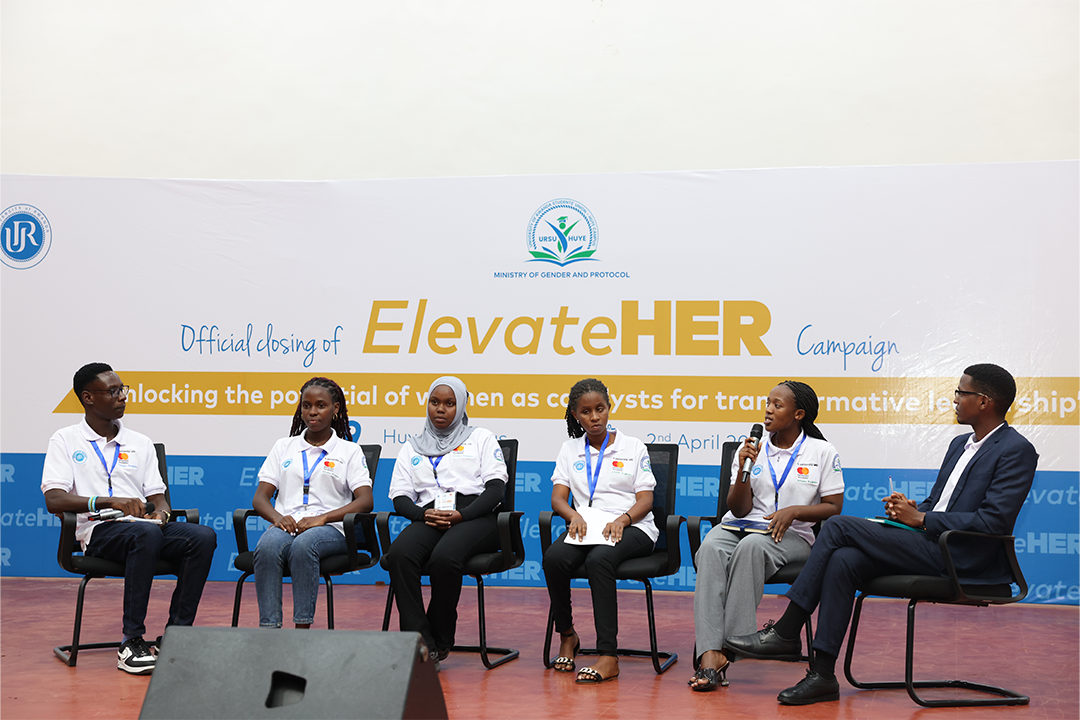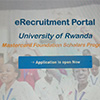133 Views 2 Populality February 2025
Mastercard Foundation Scholars Program at the University of Rwanda awards top student projects at Hatana Innovation Bootcamp
Twenty top-performing student projects were awarded grants of up to $5,000, while another eight projects received $2,000 each during the first-ever Hatana Innovation Bootcamp concluded on February 3, 2025.
The event, held from February 1-3, was organised by the University of Rwanda through the Mastercard Foundation Scholars Program at the University of Rwanda under the theme, “Fostering innovation for market-ready graduates.”
The bootcamp, which brought together over 120 University of Rwanda students, including Mastercard Foundation Scholars, aimed to enhance students’ skills in developing and implementing innovative ideas.
Organised into groups of three to five members, participants presented projects designed to transform entrepreneurial concepts into real-world solutions.
La Tasha Muganga Uwase, a student from the winning team behind the project ‘Legacy of Rwanda’, expressed her excitement: “I’m so excited because it’s a project we’ve been working on for so long. To finally get the recognition we deserve is such an honour.”
The project focuses on preserving and promoting Rwandan culture and history through immersive technologies.
“We aim to help young people and anyone interested learn about Rwanda’s history in its purest form,” Uwase said. Their approach includes virtual reality experiences, PC and mobile games, and children’s history books to engage diverse audiences.
“Now our projects are going to accelerate. We’re starting by making the Legacy of Rwanda Virtual Reality Museum accessible in museums and educational institutions, from primary schools to universities,” she added.
Reflecting on the skills gained during the bootcamp, Uwase noted the importance of connecting personally with one’s project: “I learned that pitching isn’t just about explaining your project. You must fall in love with it first, so others can see it through your eyes.”
Clement Mugisha and his team were among the winners with their project ‘Katisha Online’, a digital solution aimed at transforming how people purchase travel tickets.
“The idea addresses challenges faced by travellers, especially those who have to go to places like Nyabugogo just to buy tickets,” Mugisha explained.
Katisha Online allows users to purchase tickets conveniently via a simple *# code service or through an internet-based app.
Mugisha also noted their plans to seek partnerships with the government and transportation companies.
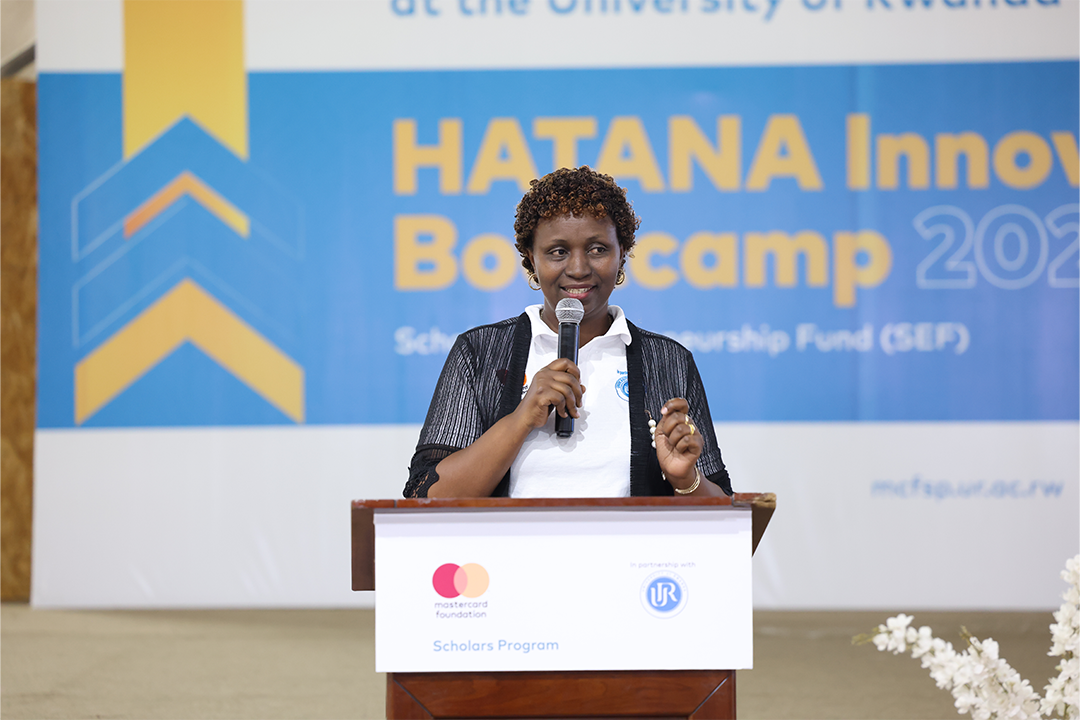
Associate Professor Anne-Marie Kagwesage, the Program Director of the Mastercard Foundation Scholars Program at the University of Rwanda, noted the diversity and potential impact of the projects submitted.
“We received a range of projects covering medicine, agriculture, economics, and job creation. These are critical areas that need to be addressed, and each project has the potential to make a meaningful impact on society,” she said.
“Initially, we planned to award only 20 projects, but after reviewing the submissions, the leadership team of the university of Rwanda found that all the ideas were strong and deserving of support. As a result, we decided to fund all the projects. Now, everyone has the opportunity to bring their ideas to life because they are all feasible,” she added.
Dr. Joseph Nkurunziza, Principal of College of Business and Economics (CBE) at the University of Rwanda who was also representing the Vice Chancellor at the awarding ceremony, emphasised the university’s commitment to nurturing student innovation.
Dr. Nkurunziza also noted the role of partnerships in the programme, noting that the Mastercard Foundation Scholars Program at the University of Rwanda supports winning projects with seed funding to help transform ideas into tangible ventures.
“The university is training two groups of people—job seekers and job creators. This programme targets job creators, many of whom previously faced the barrier of lacking initial funding. Now that challenge is being addressed,” he explained.
He stressed that the university’s goal is to encourage students to think about entrepreneurship before graduation, giving them a head start in securing funding, mentorship, and even potential bank loans.
“After this phase, we engage with lecturers and academic leaders to ensure that these projects progress to final products,” he added.
Although this is the first time the Hatana Competition has been held, there are plans to make it an annual event to support youth development.
The Mastercard Foundation Scholars Program at the University of Rwanda is a 10-year partnership with the Mastercard Foundation that aims to develop the next generation of Transformative leaders by enabling highly talented, service-oriented young people to pursue higher education and cultivate their leadership potential.
Search
Follow Us
Related contents
Psychosocial Support Services
Access our Online Psychosocial Support for mental health care.
